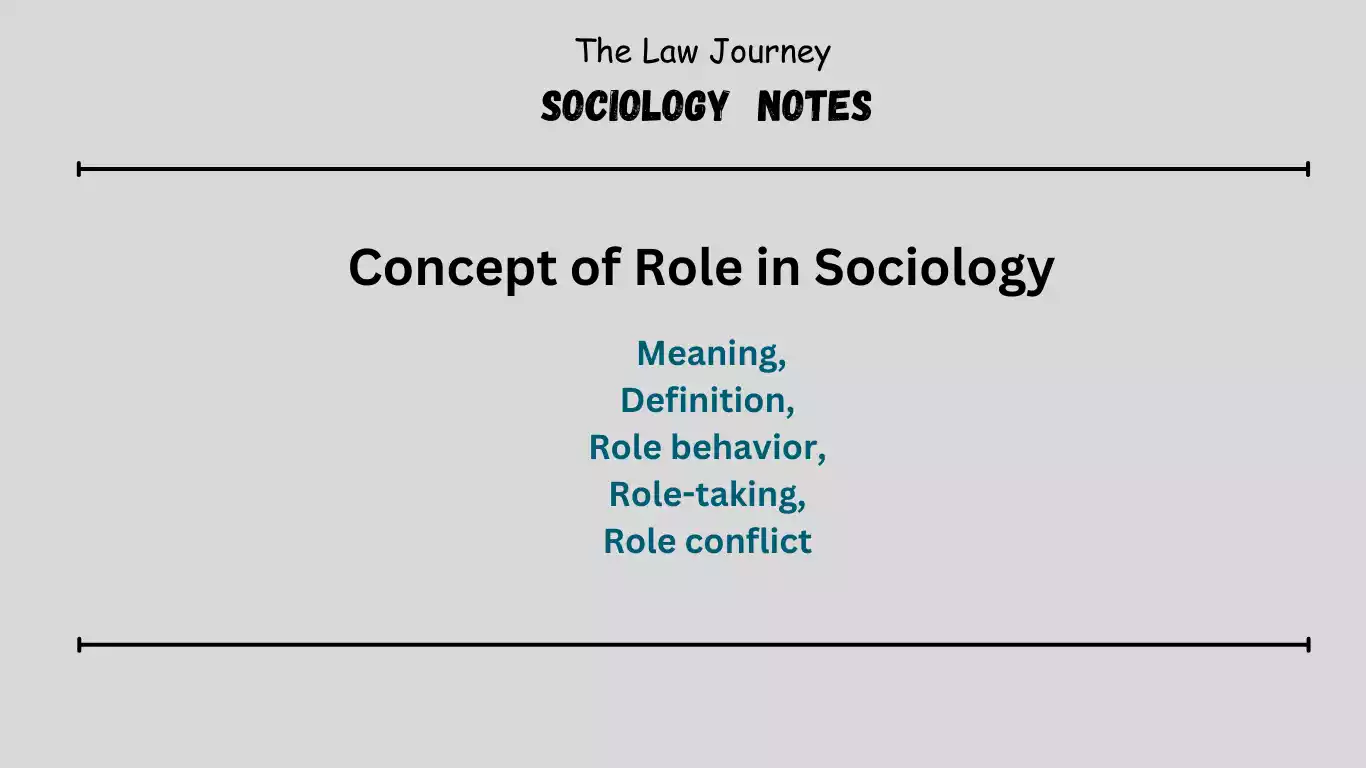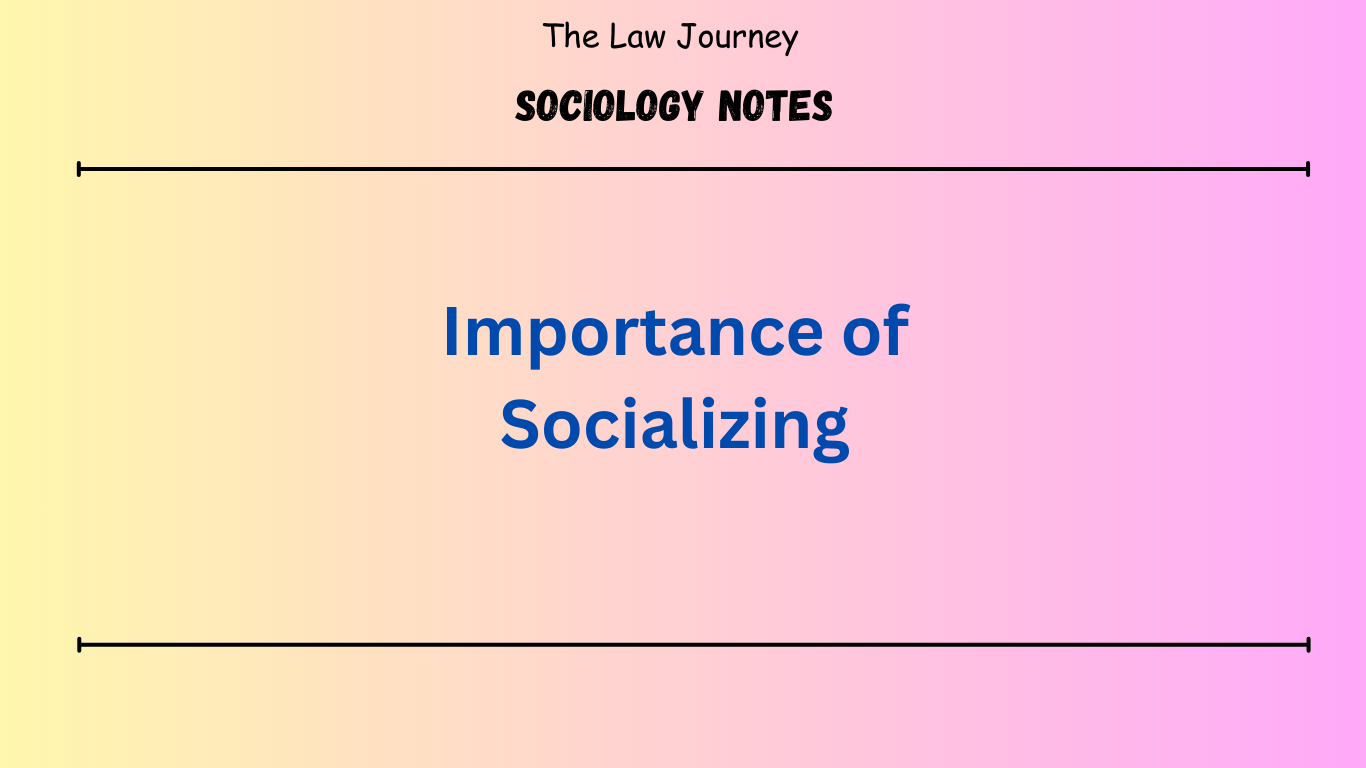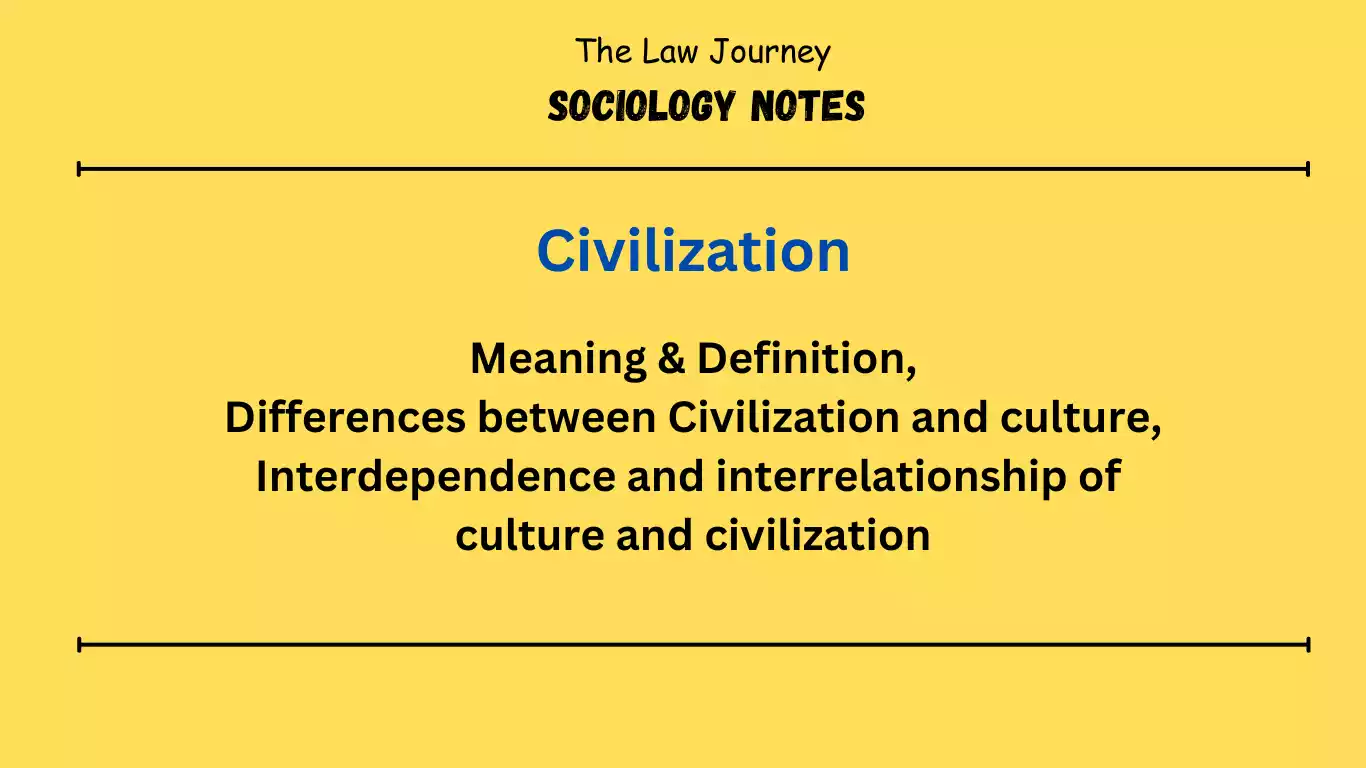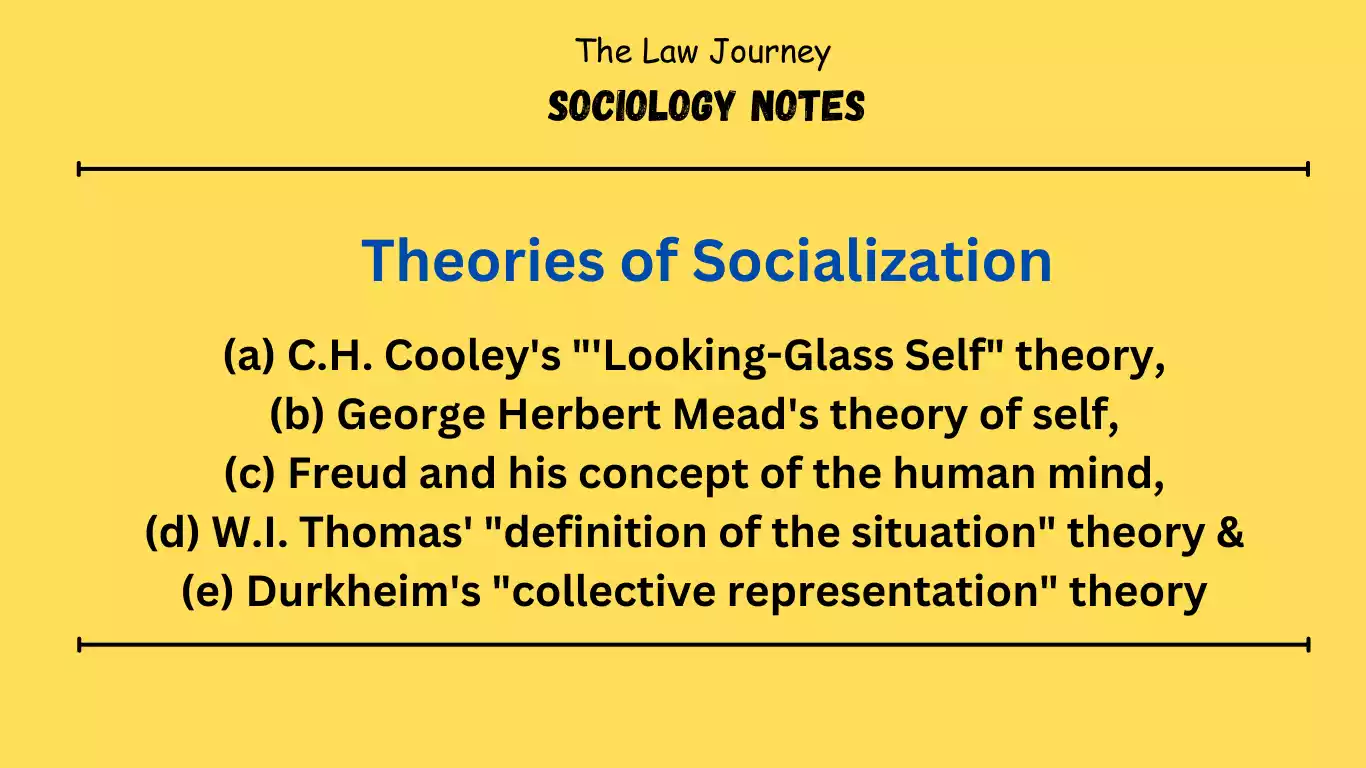Concept of Role in Sociology – Human societies exhibit “order” because the social relationships of their members and their activities are usually integrated. Meeting the diverse needs of working adults requires a willingness to cooperate by coordinating energy, time, strengths and weaknesses.
Through common sense and experience, they understand that no one can fulfill all of their goals and desires alone. They also understand that no one in society can do everyone’s job, and that not everyone is prepared or equipped for a particular job. Members of society occupy different places and have different responsibilities for the mutual benefit of all.
Thus the coordination of division of labour is achieved primarily through the assignment of duties and rights to positions or statuses. Society itself is a network of such statuses. Each status has a set of expected behaviours called ‘roles’. By providing for such “roles’ associated with each status, the many things which a society wants done will be distributed among people and groups in an agreed manner. This contributes to the orderliness in society. Therefore, status and roles represent important elements of social structure.
Definition of role
- According to Young and Mack, “A role is the function of a status”.
- Robert Bierstedt says that a “role is the dynamic or the behavioural aspect of status…..A role is what an individual does in the status he occupies”
- Duncan Mitchell writes that “a social role is the expected behaviour associated with a social position.
- For Kingsley Davis role refers to “the manner in which a person actually carries out the requirements of his position”.
Role type Analyzing “social roles” reveals the following:
Every individual member of a social group or society has an obligation to play a social role. This means role-playing games are mandatory for all members. The number of roles someone plays depends on the status they hold.
Some social roles are shared by many people.
Examples: There are many adults, citizens, voters, writers, ministers, teachers, etc.
Some social roles are performed by only one person or a relatively small number of people at a particular time and place. Example: In India, depending on the number of states, there may be only a few governors at a time. Four. Some social roles can be assumed voluntarily. Individuals can choose whether or not to take on certain roles. For example: living in the city as a townsman, playing cricket as a bowler on a team, or joining a volunteer club and taking the role of an executive member.
taking on a particular role is mostly involuntary. Many of these roles must be performed on an ongoing basis. For example: A woman must always assume the role of a woman, a man among men, a white man, a Harijan among Harijans, etc. they are unchanging.
Important Terms in Social Role
Role behavior
Role behavior refers to the way a particular person meets the expectations of their role. According to T.M., Newcombe refers to “role behavior” as actual behavior that is different from the role itself. Serbin uses the term “role enactment” to refer to role behavior. Example: Engineer status takes precedence over foreman status. One of her roles as an engineer is the expectation that she will tell the foreman what to do. However, the role behaviors of engineers can vary widely.
Mr. Gupta, the engineer, gives specific instructions in a pleasant voice, while Mr. Mehta, the engineer, gives instructions in a very general tone. The difference between the two arises not from status or role, but from role behavior.
Role behavior is influenced by a variety of factors. This means that certain factors prevent a person from performing better than expected for a certain status. First, role behavior depends on one’s efforts as a status holder. He may or may not make reasonable efforts in this direction for some reason. Second, role behavior depends on one’s sense of commitment to the normative aspects of status.
For example, it depends on the strength or weakness of a person’s commitment to performing work and fulfilling his role as a father. Third, role behavior is also influenced by the fact that someone holds other positions or statuses that come with rights and responsibilities. The role requirements of different statuses make it nearly impossible for individuals assuming different statuses to do “justice” to everyone.
People who try to live a balanced life make many compromises in their commitments. Workers who are able to perform better do not necessarily perform better just because they belong to a union that advocates go-low policies. Finally, role behavior depends on individual performance, which is determined by both experience and genetics. Experience includes cumulative learning from previous situations, and heredity influences the impact of that experience.
For example, mentally ill people are usually unable to successfully perform their duties as husbands, teachers, lawyers, and legislators. On the other hand, talented people can perform them much better than the average person.
Role-taking
The concept of “Role-taking” is becoming increasingly important in role analysis. Taking on the role of another or assuming the role of another means that one responds by mentally or imaginatively placing oneself in the role of another in order to regulate one’s own behavior. He does this only taking into account the expectations of others, and not necessarily out of a spirit of conformity.
Sociologists use the term role taking'' in discussions ofsocial interactions,” where an action is initiated by one actor and a response is performed by another.
Role-taking is important in the process of socialization, or in learning one’s social roots. The idea of role sharing is the basis of the “social self” theory developed by social psychologist G.H. It has been set. Children become social beings by playing roles and taking on the roles of others. Here, the term “self” is frequently used in role literature. The term “self” refers to what the ego believes about human beings, that is, how the ego sees itself.
As Mead pointed out, role sharing is very important in her two stages of the development of a child’s social self: the early “play” stage and the later “play” stage. In the first case, the child assumes the roles of other people, such as mother, father, teacher, milkman, bus driver, and plays these roles individually.
In the latter, older children can imagine themselves playing the role of several other positions at the same time. For example, if a child is playing a team-her game, he will be able to play that game thanks to his ability to imagine the roles of all the other players. Mead used the term “generalized other” to refer to the role of the other.
Role conflict
Role conflict refers to the conflict that individuals experience when playing a role. This is experienced by the individual at two levels: (a) within her own role body, and (b) between her own role and the role of the other actor.
First, conflict can occur when there is a discrepancy between one’s perception of one’s role and one’s perception of actual role behavior. This conflict can have a negative impact on his self-image. For example, a person who notices a big difference between how he should behave as his girlfriend’s husband and how he actually behaves may be experiencing an inner conflict. In extreme cases he can even become neurotic.
Second, individuals may experience conflict within their roles. When people play two or more roles together, they may notice some conflict between the demands of the roles. For example, the role of a doctor may conflict with the role of a husband or wife in the household. Physicians are expected to provide patient care outside of work hours as needed.
Similarly, a co-husband or wife is expected to consider the needs of their family and loved ones, at least outside of working hours. This type of conflict only occurs when opposing parties perceive the roles of those involved in different ways. This creates conflict for doctors because their wives perceive their husbands’ roles in a different light. Similarly, factory workers may experience conflict if their opinions about their duties and obligations as employees differ from those of their employers or union leaders.
In simple, culturally homogeneous, and relatively “stationary” societies, there are relatively few role conflicts. However, in relatively complex and heterogeneous social systems, role conflict increases significantly. This has led to increasing tensions within the group as well as individual discomfort.
Related Post
- Concept of Social Groups in Sociology
- internship for law students
- RTI notes
- Political Notes
- Legal History Notes
- Law of Torts notes
- law project maker
- moot court memorial maker
what is role in sociology ?
According to Young and Mack, “A role is the function of a status”.
Reference Books
- Introduction to Sociology by Anthony Giddens
- A Dictionary of Sociology by John Scott
- C.N. Shankar Rao – Principle of sociology with an introduction to social thoughts
- Handbook of Indian Sociology by Veena Das
- Social Change in Modern India by M N Srinivas
- Sociological Theory by George Ritzer

















